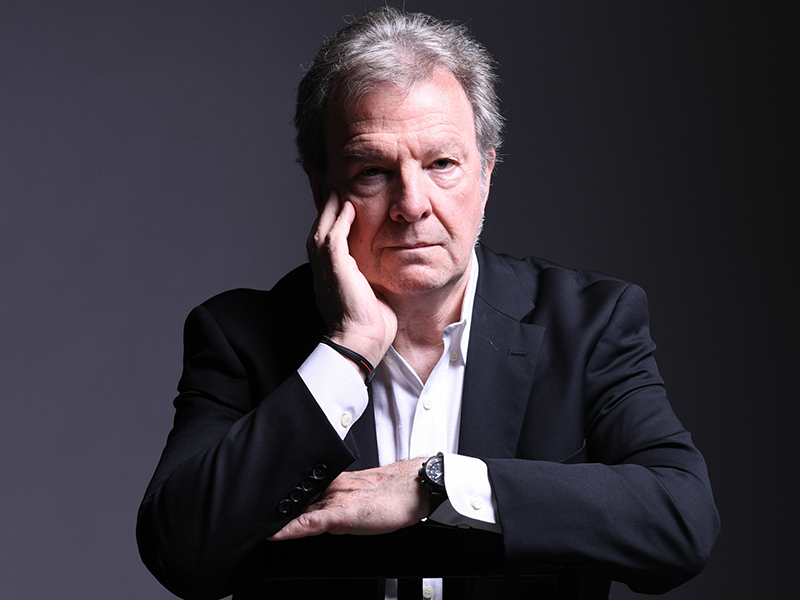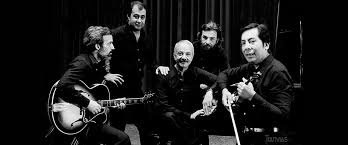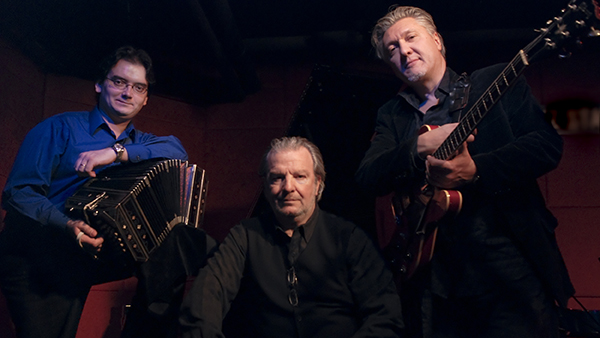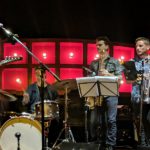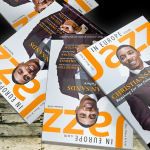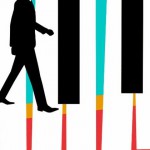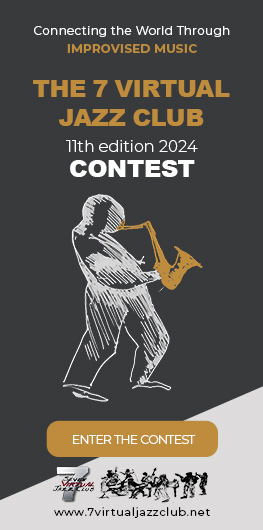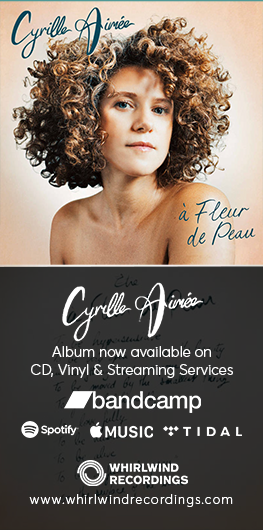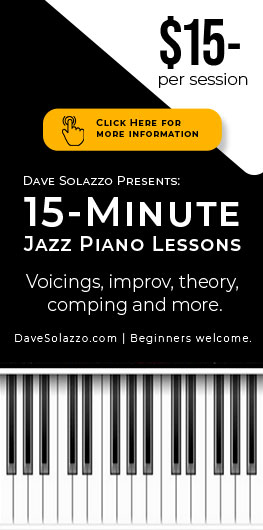Argentine composer, pianist, arranger Pablo Ziegler is currently the leading exponent of nuevo tango, thanks to the skills and reputation he gathered while working extensively as Astor Piazzolla’s regular pianist from 1978 until his retirement for health reasons in 1989. Since then Ziegler has led his own groups, refining and re-imagining the bounds of the modern tango tradition.
Recent seasons have seen Ziegler performing at major venues, including Carnegie Hall, the Lincoln Center Out of Doors, Muziekgebouw ann het Ij (Amsterdam), Verbier Festival, Ravinia SF Jazz Festival, Montreal Jazz Festival, the Ottawa International Jazz Fest, Tokyo Jazz Festival, Blue Note, Birdland and many others. Pablo’s 2017 release on Zoho Records “Jazz Tango won the 60th GRAMMY Award for Best Latin Jazz Album and his 2013 release “Amsterdam Meets New Tango” with the Netherlands’ Metropole Orkest, was nominated for a Latin Grammy award. Recently I sat down with Pablo to discuss all this, His latest solo piano release and a great deal more.
Andrew Read: Thank you Pablo for taking the time to speak with us and, congratulations on your recent Grammy win. To start, if I’m correct, you started to study classical piano at a very young age. At the age of 15 your father introduced you to the tango. When and how was it that you first became interested in Jazz?
Pablo Ziegler: Thank you for having me. It’s a great pleasure. I started my first piano study at Buenos Aires Conservatory at the age of four. My mother saw me playing the melody I heard in a movie on my grandmother’s piano and took me to the conservatory. I studied there for 10 years and finaly I received Gold Medal and First Prize at graduation. This was my debut as a classical concert pianist.
My father was a violin player at Columbia Record Label’s Tango Orchestra and he introduced me to Tango music, but I always considered tango music as a music for old people and never played it in public. When I graduated from the conservatory at the age of 15, I was preparing for an international piano competition like Chopin Competition, but my professor died and it was a huge shock to me. One day, my neighbour gave me a recording of Duke Ellington and it changed my life. Both things happened around the same time, and I deeply fell in love with jazz music and started playing in Jazz Bands immediately.
AR: Apart from yourself, internationally, Gato Barbieri would be seen as one of the Argentina’s most successful jazz exports. Unfortunately, here in Europe not a great deal is known about the Argentinian jazz scene. Can you tell us a little about the jazz scene in Buenos Aires during your formative years?
PZ: When I was playing as a jazz pianist in Argentina in 1960’s, Dixland was a big trend. It was a golden age of American Jazz in Argentina and Buenos Aires was full of jazz gigs. After that, I became interested in Bebop and I created my own Jazz trio where I combined my classical repertoire with jazz improvisation. That group was very successful and apparently Piazzolla learned about me because of this trio I had.
AR: When researching for this interview I read a piece where you explained that historically in Argentina there was some animosity between the tango orchestra’s that thought Jazz and Latin was “gringo music.” and the jazz musicians who “..consider the tango a minor music.” is this still the case?
PZ: In 1950’s or 1960’s, jazz musicians around my age wouldn’t listen to or play tango music because we considered tango “music for old people”. So, there were two separate worlds between jazz and tango. I’ve been living in New York for over 20 years, so I don’t know the current situation there. Although, I started discovering beautiful tango pieces during years I was playing with Piazzolla and I appreciate it more than ever.
AR: You came to prominence internationally through your work with Astor Piazzolla, How did this gig come about?
PZ: One day I received a phone called and found out that Piazzolla wanted me to join his new (which became the last) quintet. At that time, I had my own music production company and was working as a composer and arranger for film, TV series, theatre, commercial and performing as a pianist. Also, a few weeks before this phone call, I was approached by Alberto Cortes to work as a music director in Spain. So, a lot of things happened at the same time. Finally, I met Piazzolla at his apartment which was a few blocks from my apartment in Palermo neighborhood in Buenos Aires. I played one of his cadenza for him and he seemed very happy how I played and handed me a huge pile of music sheets. But I told him that I was not a tango pianist. He said “That’s why I called you”. He was looking for someone with a strong classical piano training with jazz skill to expand his music. Tango was never part of my professional music career. Now some people have a confused idea that I’m a tango pianist but I’ve never considered myself a tango pianist.
AR: Astor Piazolla was known as the founder of the “nuevo tango” where he expanded the traditional tango to include elements of European classical music and improvisation. Some writer’s credit you as the player that introduced jazz elements to his performances. Would you say this is true and how do you see your impact on Piazolla’s music.
PZ: It’s true that Piazzolla didn’t improvise when I first met him. He invited me to join his quintet because of my jazz skills as an improviser. The improvisation part of Piazzolla’s music is something that I brought up during the course of our rehearsals and concerts. I asked Piazzolla if I had to play exactly what’s written in the sheet music and he said “Take all the liberty to play whatever you feel you should play”. Then, I started to modify and improvise within his music. Piazzolla was delighted to hear what was happening to his music. I applied a lot of my knowledge from jazz rock and bebop that I learned in the late 1970’s to his music.
Piazzolla’s music was just like chamber music, he never used lead sheets and his music was 100% written out. He eventually started improvising during the last few years of our collaboration. I always encouraged him to improvise because I knew that it was in him. At some point, Piazzolla started creating a section for me in his new compositions the code changes where I could improvise freely.
One of a good example is “Tristeza de Doble A”. This piece is originally 5 min long but we improvised so much between Piazzolla and me and it lasted about 20 min in the video/DVD of the performance at Montreal Jazz Festival. It was the climax of the quintet. We had great time together.
AR: What was your greatest “takeaway” from your time working with Astor Piazolla and how has this translated into the music you are playing today?
PZ: Before I met Piazzolla, I composed more universal music but he made me realize how important it is to write about your origin, in my case, Buenos Aires. He believed a composition is best reflected when you write about where you’re coming from. I discovered how to express the flavor and ambiance that Buenos Aires has through my compositions. I’m grateful that I was able to find my identity and create “Jazz Tango” in my own language.
AR:Let’s talk about the latest album. The album was recorded live, was this a conscious decision?
PZ: I always love a live recording because you can never get the same energy in the studio without audience. That’s why most of my albums are live recordings. Whenever I create an album, I try to record a live concert or I create a concert ambiance in a studio. When we have the audience, a special chemistry happens, it’s something magical that you only can feel during the live performance and that’s what I’m looking for in my albums and my music. I like to create an album that reflects our performance at the moment of creation.
AR: Performing in a Trio setting of piano, guitar and bandoneon one may think that you would miss the bass however this is not at all the case. When I listen to the album I hear the rhythm section function shared across all instruments. Can you tell us about your approach to this?
PZ: This trio is a very complete format because the bass line is always there either in the piano and/or the guitar. That’s why you don’t miss the bass. When I compose or arrange music for my trio, I always have an orchestration in my mind, so it’s a condensed version of my orchestration. In other words, all three of us have roles of two or three instruments including rhythm section.
For example, I’m playing a lot of bass line with my left hand. I always write guitar parts that includes a bass line. Then, it’s up to the player if he can play all the notes including the bass line or not. Also, bandoneon is an instrument with a wide range from bassoon to flute. So, all together, it’s a very tight and intense format for me. It’s one of my favorite formats.
AR: One of Europe’s great large ensembles is the Hilversum (The Netherlands) based Metropole Orkest. In 2009 you recorded and album with them. How do you see the difference performing with a large ensemble as compared to your Trio.
PZ: I really loved the collaboration with Metropole Orkest and I was delighted to perform with them and I’m very happy that this album came out as a live recording. The orchestra members were improvising and they brought my music to a different dimension. Through this collaboration, I was able to hear what I wanted to hear from my music. For me, this is a perfect cross-over between jazz, tango, and contemporary music.
AR: “Jazz Tango” was recorded in 2015 and released in 2017. Do you have plans to follow up the album in the near future?
PZ: I’ve just released my first solo piano album titled simply “Solo” on the Steinway and Sons Label. A Solo piano album has been requested for probably over 20 years and finally it happened. This album is a reflection of my journey from my youth to the current time. You will hear some of my classical, jazz, and nuevo tango identity in this album. It was a challenging project because I had to cover all the instruments that are supposed to be in my music. Just having 10 fingers is sometimes not enough to express my ideas. But what I tried to do is tell a story with my music through the piano. I would love the audience to witness the intimate conversation I have with the piano through this album.
AR: I’ve asked this question a great deal in recent interviews and it’s provoked some rather interesting answers so far, so here I go. What are your thoughts on the state of Jazz and Latin music today and where do you see the future of the genre?
PZ: I hear a lot of same sound over and over in the jazz scene with a very few exceptions… Probably it’s our responsibility as composers to create something new. That’s also a message to myself.
AR: I see on your website that you have concerts in Europe planned for June and September this year. Can you tell us where you will be playing?, Will you be touring with the Trio or will will this be something else?
PZ: I start my European tour in Italy at the Arte Sella Festival on June 2nd. I’m excited participate this festival organized by the world renown cellist Mario Brunello. It’s very unique as they organize it in the middle of forest. This is my new collaboration and I’ll be performing with a wonderful Italian saxophone player, Marco Albonetti’s trio. While in Italy I will also play some other dates.
I will also be back in Europe in September and I’ll be performing with my trio around Germany and Austria. I’m looking forward to being back in Europe.
AR: Thank you Pablo for taking the time to speak with me and both I and our readers are also looking forward to having you back in Europe.
Pablo Zieglers tour dates are as follows:
June 2: Arte Sella (Borgo Valsugana),
June 10: Palazzo Fantini (Tredozio),
June 14: Teatro Masini (Faenza),
June 20: Palazzo di Ludovico il Moro (Ferrara).
Sep 27: Stadttheater Landsberg (Landsberg am Lech),
Sep 28 at Birdland (Neuberg),
Oct 4 at Porgy & Bess (Vienna),
Oct 5 at Schloss Rothschild (Waidhofen)
You can find out more about Pablo Ziegler at his website.
More Information on his latest Solo album can be found here. If you’ve not heard his Grammy winning album “ Jazz Tango” you can check it out here.
Photo Credits: Pablo Ziegler – and (c) info: all rights go to original recording artist/owner/photographer(s)
Last modified: April 25, 2020


